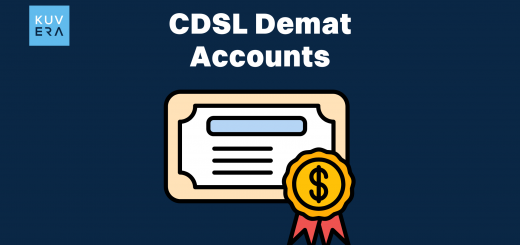Are you considering mutual funds or passive funds India that offer indexation benefits? Indexation has historically been a great way to save on Long Term Capital Gains (LTCG) tax, helping long-term investors keep more of their returns. However, the recent Union Budget 2024 removed indexation benefits, potentially leading to higher tax payments.
Let’s break down what indexation is, the benefits indexation provides, the recent changes from Budget 2024 changes, and how they might affect your investments.
What Is Indexation?
Before we examine the impact of removing indexation, let’s explore what indexation benefit means.
Indexation is a tax-saving mechanism that benefits long-term investors. When you invest in equities for an extended period, the cost of acquisition of these shares increases over time due to inflation and market fluctuations.
Indexation benefit allows you to adjust the purchase price of your shares to account for this increase, thereby reducing your taxable capital gains (especially for investments of more than one year).
In recent years, there have been discussions about potential changes to the indexation benefit. While the specific details and the extent of these changes might vary, the general trend is towards reducing or eliminating this tax advantage.
Union Budget 2024 and Abolition of Indexation
The Union Budget 2024 introduced a significant shift in how LTCGs are taxed on real estate in India. Previously, when selling a property held for the long term, individuals could adjust the original purchase price for inflation using the cost inflation index. This mechanism, known as indexation, effectively reduced the taxable profit and tax liability.
However, the recent Union Budget 2024 removed indexation benefits for properties acquired on or after 23 July 2024. The purchase price remains static, irrespective of how long the property has been held or how much inflation has occurred. This means the taxable gain is calculated on the nominal difference between the selling price and the original purchase price, potentially leading to a higher tax outgo.
The government reduced the LTCG tax rate from 20% to 12.5% to offset this. While seemingly beneficial, the absence of indexation could outweigh the lower rate, especially for assets held for an extended period.
This policy shift has sparked debate. Some argue it simplifies capital gains calculations and broadens the tax base. Others contend it disincentivises long-term investment in real estate and disproportionately impacts those who acquired properties during periods of high inflation.
It is crucial to note that the government later provided an option for taxpayers to choose between the new regime (12.5% without indexation) and the old regime (20% with indexation) for properties acquired before 23 July 2024. This offers flexibility and allows individuals to opt for the system that best suits their financial situation.
How Does This Impact Your Investments?
The removal or reduction of indexation benefits can significantly impact your long-term investment returns in several ways:
- Higher Tax Outgo: Without indexation benefit, your taxable capital gains will increase. This means you’ll have to pay more taxes on your investment profits.
- Reduced Net Returns: The higher tax burden directly reduces your net returns. This can erode the value of your investments over time.
- Disincentive for Long-Term Investing: The elimination of indexation benefits might discourage long-term investing. Investors may opt for short-term trading strategies to avoid higher taxes.
- Impact on Retirement Planning: Long-term investments are crucial for retirement planning. Higher taxes can hinder the growth of your retirement corpus.
Strategies to Mitigate the Impact
The recent budget’s decision to scrap indexation for long-term capital gains on real estate is undoubtedly a game-changer. It throws a wrench in the works for many investors who relied on this mechanism to soften the blow of inflation on their tax liability. However, as with any significant financial shift, adapting and exploring new strategies is key.
Here’s how you can navigate this change and potentially lessen its impact on your returns:
1. Seek Expert Advice: It is essential to seek advice from tax professionals on saving and understanding the tax implications of investments. Tax laws are complex, and this change adds another layer of intricacy. You can take help from a qualified tax advisor who can analyse your investment portfolio and provide personalised guidance on how this change affects you specifically. They can help you understand the nuances and explore potential avenues for minimising your tax burden within the bounds of the law.
2. Explore Tax-Saving Investments: With indexation off the table for property, it is time to cast a wider net and explore other investment avenues that offer inherent tax advantages. Consider options like Equity-Linked Savings Schemes (ELSS) – these mutual funds provide the potential for growth and come with tax benefits under Section 80C of the Income Tax Act.
3. Strategic Timing is Key: The timing of your investments can significantly influence your tax outgo. This is where a seasoned financial advisor can be invaluable. They can help you map out a strategy that aligns with your financial goals while optimising tax efficiency. This might involve staggering investments, utilising tax-loss harvesting techniques, or strategically timing your property sales to minimise your tax exposure.
4. Diversification is Your Friend: Avoid putting all your eggs in one basket, especially now. Diversifying your investment portfolio across different asset classes can help mitigate risk and potentially reduce your overall tax burden. By spreading your investments across stocks, bonds, real estate, and other asset classes, you can create a more balanced portfolio less susceptible to shocks from changes in any single asset class.
5. Stay Informed: The financial landscape is constantly evolving. Stay abreast of the latest tax laws, regulations, and investment trends. Subscribe to reputable financial publications, attend seminars, and engage with your financial advisor regularly to ensure you make informed decisions that align with the current financial climate.
Wrapping Up
The potential removal or reduction of indexation benefit is a significant development for long-term investors. It is essential to understand the implications and take proactive steps to protect your investments. You need to consult a financial advisor and taxation professional and implement effective strategies to navigate these changes and continue to build a robust financial future.
Interested in how we think about the markets?
Read more: Zen And The Art Of Investing
Watch here: Is UPI Killing the Toffee Business?












